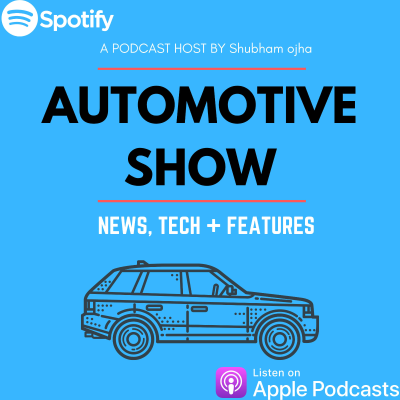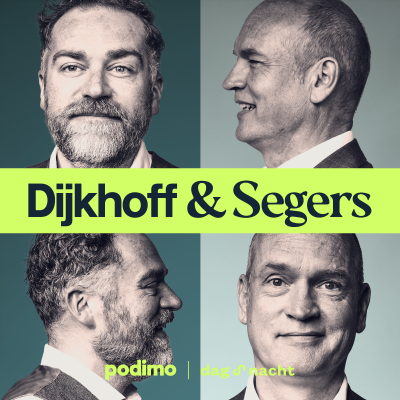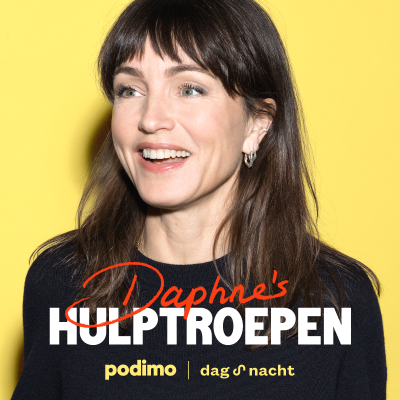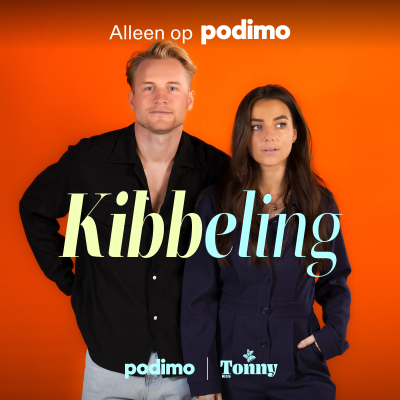
Automotive Show
Engels
Technologie en Wetenschap
Tijdelijke aanbieding
2 maanden voor € 1
Daarna € 9,99 / maandElk moment opzegbaar.
- 20 uur luisterboeken / maand
- Podcasts die je alleen op Podimo hoort
- Gratis podcasts
Over Automotive Show
The only Podcast that talks about Research and Development in Automobile Domain. Topics we cover are the internal Combustion engine, Connected Car, Autonomous Vehicle, Electric Vehicles, and vehicle maintenance tips. If you want to grow and keep your knowledge update on new technology feel free to follow as We Upload Every Monday, 2200 IST. Feedback and Bussines inquiry: Ojhashubham11@gmail.com
Alle afleveringen
32 afleveringenFuture of Automobile Sensors
in this we are going to talk about the Future Of Automobile sensors as they are on of the most crucial parts and plays important role. Without them Modern car like vehicle without brain. From Fuel to new feature that we admire are possible because of this only. So it's very important to understand the future and safety around it yes safety is important and crucial for the automobile sector. Lets deep Dive into this and understand about the car sensors and safety.
Battery swapping technology
Battery swapping – replacing a depleted battery with a freshly charged one – is not new: The first experiments with exchanging batteries in electric vehicles (EVs) date to the late 1890s, according to industrial historian David A Kirsch. Here is a timeline of key events in the development of battery swapping: 1896: Auto pioneers consider the exchange of depleted batteries with fresh ones as a way to extend the operating range of early rudimentary EVs, from streetcars to delivery trucks. 1912: General Electric launches a “battery service” that enables EV owners to swap batteries for a modest monthly fee and a variable per-mile charge. Other similar services spring up in large cities. Semi-mechanised swaps take as little as three minutes at some stations. And by separating the battery from the vehicle, the service helps lower the initial cost by a third or more. 1924: General Electric’s GeVeCo battery service is discontinued. Waning demand for EVs and the lack of interest in industry-wide battery standardisation stall further development of battery swapping for more than 80 years. 2007: Silicon Valley startup Better Place develops a “battery switching” process and signs up Renault-Nissan for pilot projects in several countries. 2008: The Beijing Olympics showcase a fleet of 50 electric buses featuring swappable batteries. China’s Wanxiang demonstrates an electric bus with swappable batteries at the Games. 2010: Better Place is invited to meet with officials of the state-owned China Grid to discuss battery swapping. China Grid ends the talks without a deal. 2013: The same issues that helped kill the decades-earlier GeVeCo service, notably lack of interest by consumers and vehicle manufacturers, catch up to Better Place. After raising – and burning through – more than $600 million in investors’ money in just six years, the company files for bankruptcy. 2013: Tesla offers a limited battery swap service for the new Model S, which was designed from the start to accommodate swappable batteries. The swapping process is arduous (“a pain in the ass,” a former Tesla executive said) and the pilot programme is quietly retired in 2015. Tesla CEO Elon Musk orders his team instead to turn its attention to building out a proprietary network of charging stations called “superchargers.” 2014: Nio is established in China, with satellite operations in the US and Europe. In 2017, it announces a plan to offer customers the option of swappable batteries, a service that it begins in 2018.
MetaVerse In Automobile Sector
Driving into Interactive Digital work: Major brands and companies have discoer the metaverse for themselves. More and More car manufacturers are also Showing Interest in the Metaverse world, which is a digital 3d world that does not exist in the real Skodaverse which is Skoda meta world and other big manufactures are using this world for world premier and unveiling their products in the marketplace. From racing to even building new products Ford Mercedes Audi and Nissan etc are on these platforms to increase their presence in the digital as well as the real world. How they are doing it and what for that listen to this podcast till the end. For any questions/suggestions feel free to mail: Ojhashubham11@gmail.com
Artificial intelligence In Automobile Production By BMW
In this, we will discuss AI or artificial intelligence in the automobile production lines with the help of BMW Germany's case in this we see the really achieving things that others should follow them. They are managing the whole plant on AI and Machine learning so that they can reduce the cost of production and minimize the defect to whole next level. Stick till the end of this podcast we will learn new things and if you have any questions or suggestions feel free to comment or reach me at email id: ojhashubham11@gmail.com
FrameWork to Evaluate the quality of software
In recent years, the role and the importance of software in the automotive domain have changed dramatically. Being able to systematically evaluate and manage software quality is becoming even more crucial. In practice, however, a still largely static approach to measuring software quality prevails, based on a predefined list of complexity metrics with static thresholds to fulfill can be found. As an alternative, Fraunhofer IESE and Bosch propose a more flexible framework instead, which systematically derives measures and evaluation rules based on the goals and context of a development project Conclusion Currently, the framework is only de- fined on a conceptual level based on our knowledge and experience from research and practice. An extended ver- sion of this paper can be accessed online with a more detailed analysis of the state of the art and the state of the practice. The project partners would like to en-courage all parties (OEMs and suppliers) to start an open discussion about what a novel approach for measurement-based evaluation and management of software quality could look like. For more such Podcast feel free to subscribe and any feedback let us know in mail. Ojha@shubhamojha.in Thanks You
Kies je abonnement
Tijdelijke aanbieding
Premium
20 uur aan luisterboeken
Podcasts die je alleen op Podimo hoort
Gratis podcasts
Elk moment opzegbaar
2 maanden voor € 1
Daarna € 9,99 / maand
Premium Plus
Onbeperkt luisterboeken
Podcasts die je alleen op Podimo hoort
Gratis podcasts
Elk moment opzegbaar
Probeer 30 dagen gratis
Daarna € 11,99 / maand
2 maanden voor € 1. Daarna € 9,99 / maand. Elk moment opzegbaar.















































